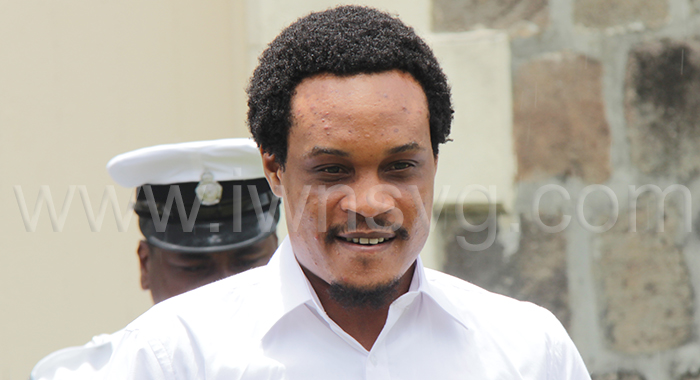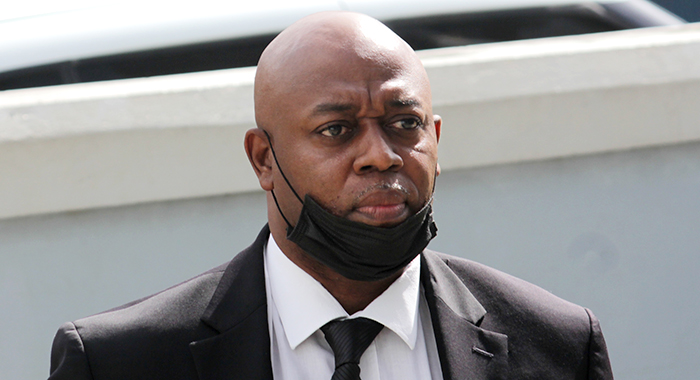Defence lawyer Duane Daniel has described as “woefully perplexing” the sentencing of his client for possession of a firearm with intent to commit murder even as the jury had found him not guilty of that murder.
On Thursday, Daniel’s client, Devon “Chiefman” Charles, 38, was jailed for 17 years on the firearm offence.
On Oct. 3, a jury found Charles not guilty of the charge that on Aug. 2, 2020, at Block 2000, Old Montrose, he murdered Kimron Hannaway, 28, aka “Warlord” and “Dog Man”.
The jury, however, returned a guilty verdict on the charge that Charles had a firearm in his possession with intent to commit an offence, to wit murder.
At the sentencing hearing on Thursday, Daniel told the court that he wanted to preface his submission by saying that he found the exercise that the court was about to embark upon “to be woefully perplexing based on the result returned by the jury”.
He reminded the court that Charles was charged with murder and with possession of a firearm with intent to commit an offence to wit murder.
“Now, I say it is perplexing because the facts are not separate,” he said, noting that the prosecution led the same evidence in support of their case on both charges.
“The possession of the firearm was not possession simpliciter. The facts were one and the same, because the possession of the firearm based on the evidence of sole purported eyewitness, the only inference that can be made is that the possession was at the material time, it would appear, to not be during unlawful circumstance since self-defence affords a full defence to murder,” Daniel told the court.
“I say that to put out front and before the court that with every due respect to the duty of the jury, it appears on the face of it to be perverse.”
The judge told Daniel that the court did not share his opinion but would listen to him.
Daniel said the verdict of the jury may be the subject matter of a different course elsewhere, a possible hint at an appeal.
He told the court it was impossible for the jury to return a verdict of guilty to possession with intent to commit murder, having found Charles not guilty of murder.

However, Justice Cottle told the defence counsel that the jury did not say that a murder was not committed.
On the contrary, the jury said that the evidence of the prosecution did not convince them, Justice Cottle responded.
He told the lawyer that people are convicted every day “for attempting to do impossible things”.
Moving on to his mitigation, Daniel told the court that he disagreed with the prosecution that there were no exceptional circumstances warranting a departure from the guidelines.
He said he disagreed because it is “perverse, … illogical, … makes absolutely no sense” in light of the not guilty verdict for murder and guilty for possession with intent to commit murder.
“There is no evidence that the gun belonged to him. The evidence is that it was on the main witness’ property,” Daniel said, adding that he, therefore, did not agree that the fact that the firearm was not recovered makes it an aggravating circumstance.
He also disagreed with the point about the firearm being used on someone’s property being an aggravating feature.
“If a man is being attacked, that he was cut through flesh, through veins to the bone, that he must consider the niceties that he was on someone else’s property to satisfy the ire of the prosecution?” the lawyer told the court.
He noted that the prosecution’s case was that Charles had killed in cold blood and the prosecution led certain facts to support that case.
However, the jury, by its verdict, said he was not guilty of that offence.
“The tenor to be taken from the verdict of the jury is that he was not guilty of an unlawful act,” Daniel said.
But Justice Cottle said that Daniel kept making the point that the jury’s verdict supports the case of the defence.
“It does not,” the judge said. “It says that the prosecution’s case did not convince them. The defence has nothing to prove.”
Returning to the mitigation, Daniel said the prosecution had said there was a lack of remorse.
The lawyer said this is because the prosecution’s case, as outlined in their open argument, was that Charles shot Hannaway in cold blood and, therefore, committed an unlawful act.
“… and therefore, [Charles] is guilty, in keeping with the thrust of what My Worship is saying, the prosecution failed in that regard. And I am saying that because the prosecution failed in that regard, there is a particular inference to be made.”
Daniel said it boggled his mind that the prosecution was entitled to some inferences and are to remove themselves from what clearly is the only inference from the verdict.
But the judge said the jury was not saying that the prosecution was wrong but was saying, “We are not sure you are right.”
Justice Cottle said that the jury was saying that Charles did not commit murder but intended so to do.
Daniel, however, disagreed.
He said the definition of murder, when it is being taught in law school, includes two fundamental parts, the actus rea (“guilty act”) and mens rea (criminal intent).
“…you must have, even for a fleeting moment, as the case law says, that intention,” Daniel argued.
The judge said the jury was saying Charles had the intention but they were not satisfied that the actus rea was proved beyond a reasonable doubt.
“I cannot go behind the jury’s verdict. I can only say what the jury said,” Justice Cottle said.






